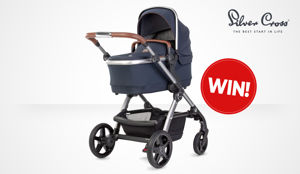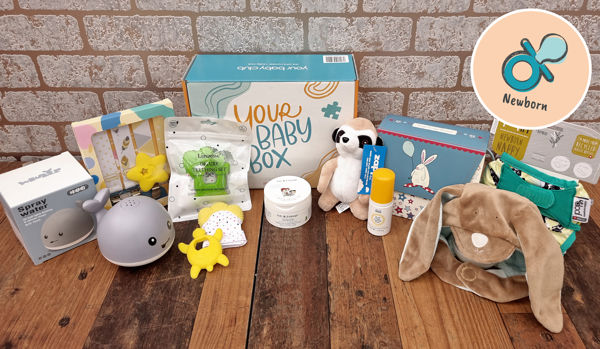This post is one I've been meaning to write for a very long time. It's about a really important issue regarding a subject close to my heart. I want to discuss the fact that breastfeeding subsequent children isn't necessarily easy - as I found out the hard way with my second daughter.
When you've been there once and got the t-shirt (and the nursing bras, the pump, the cracked nipples, etcetera), it's understandable that you might assume breastfeeding another baby will be very straight forward: you've previously mastered the perfect latch and successfully nursed for an extended period - what could go wrong?!
Well, as somebody who overcame the difficulties associated with an early baby who was subsequently tube fed, went on to feed her for nearly two years, and also took such an active interest in the topic of breastfeeding that I've researched lots and written extensively on the subject - I had zero concerns.
And I was in for a massive wake up call and a nasty shock.
Unexpected Problems
Elfin arrived following the perfect delivery. So, of course, I expected nursing to be easy too.
Things seemed okay initially, but over the course of the next few days feeds seemed to get harder instead of easier. Elfin was fussy and there were telltale clicking sounds - a classic sign that latch was poor. Yet she was gaining weight and there was no obvious issue.
I persevered but it was making me sore and stressed. I was convinced something was wrong so I sought the opinion of a qualified breastfeeding peer supporter. Being very experienced myself, it left me feeling totally inadequate and I lost so much confidence at that time - I couldn't understand what was going on.
The peer supporter took a look and agreed something wasn't right, which made me feel validated and determined to get to the bottom of it.
Finally - a Diagnosis
I did tons of research and started to suspect what may be behind our problems. It was difficult, but I fought to get Elfin checked for a lip or tongue tie - there’s a cut off for assessment and she was on its cusp. When it came back clear I was left feeling completely demoralised and like I was banging my head against a brick wall.
Then, when Elfin was five weeks old I finally got a diagnosis: she had cow's milk protein allergy.
I’d been referred to a paediatric consultant at A&E for something entirely unrelated (which turned out to be nothing to be concerned about). While Elfin was being checked over he took one look at her poor face and told me she had CMPA.
Up until that moment I’d resisted labelling her with an allergy, putting her dreadful skin down to baby acne. I’ve since discovered that CMPA is actually quite common, being present in 2 - 3% of infants. What’s more unusual is that Elfin reacted through my milk - this occurs in only 0.5% of babies.
Overcoming Breastfeeding Struggles
I went dairy-free immediately, not touching it (or soya) again for around ten months, when Elfin was nearing a year old and we completed the milk ladder. From the point of diagnosis, we continued to have a difficult journey for a while, but I was able to ascribe it to her being in pain, and I continued to nurse her through my own discomfort. Over time Elfin’s fussiness at the breast eased off and we found our stride.
I wouldn’t say it became ‘easy’ - Elfin suffered from horrendous colic for several months and at nearly two years old as I write, her sleep pattern is still brutal - but it evolved into something manageable.
Breastfeeding through allergies is no mean feat - at a time when I was craving particular foods, I found my diet severely restricted. But when your baby’s health is at stake you do what you have to do, and frankly, I was just incredibly relieved to have an answer.
Should You Persevere Through Breastfeeding Difficulties?
This is such a personal decision. For me, there was no question at all; the consultant told me it would be better for my baby to continue nursing her without adapting my diet than to switch her to formula, which served only to validate my absolute dedication.
But it’s tough, and I understand why many women at that point choose a different path.
There’s not enough support for mothers nursing through allergies - there’s not enough breastfeeding support period. Too many doctors are not up to date with current research, and formula is pushed as the only viable option.
But it’s not just about CMPA, it could be a tie, reflux, another allergy, or something else. If there’s an issue affecting your comfort and ability to nurse your baby then help should be a priority, should you wish to overcome it.
I wanted to write this post is to raise awareness of the potential for issues to occur in your breastfeeding journey, even when you’ve been successful previously. I was bewildered at my problems and hate to think of other mothers facing similar difficulties.
My experience with Elfin has proved to me that ongoing breastfeeding support is critical for every birth, not just the first. We deserve it, and so do our children.







